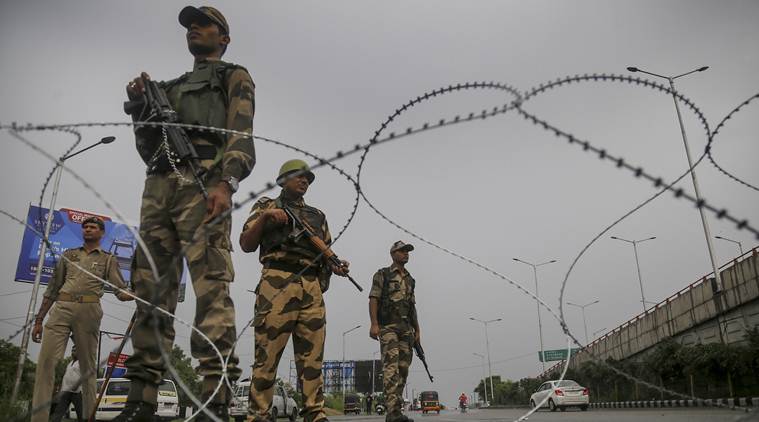Saying that a new era had begun in Jammu-Kashmir and Ladakh following the scrapping of special status and bifurcation of the state, Prime Minister Narendra Modi assured the people they would get the opportunity to elect their representatives transparently. PM Modi’s speech to nation highlights
“I am giving assurance that you will get the opportunity to elect your representatives in a transparent way. Your representative will be elected by you and from among you,” Modi said in an address to the nation two days after the Parliament diluted Article 370 and bifurcated the state into two Union Territories.
Justifying the government’s move, the prime minister said Pakistan was using Article 370 as a tool to spread terrorism. “Over 42,000 people died. Article 370 and Article 35 (A) did not give anything except separatism, corruption, terrorism and family rule,” Modi said.

The PM’s remark comes a day after the Pakistan National Security Council (NSC), chaired by Prime Minister Imran Khan, decided to downgrade diplomatic ties with India and suspend bilateral trade.
Assuring the people of Kashmir that they won’t face any difficulty in celebrating Eid, PM Modi said J&K would be granted statehood again in near future.
Explained | What’s changed in Jammu and Kashmir?
“I assure you things will return to normal. People in Jammu and Kashmir will not face any difficulty in celebrating Eid. As J&K will see more and more development, I do not think it will remain Union Territory for long. Ladakh will remain the UT,” PM Modi said.
In an apparent a dig at the Opposition, PM Modi said no one had been able to justify how Article 370 and Article 35A was benefitting people of the state. “We will rid Jammu and Kashmir of terrorism and separatism under new measures,” Modi said in the televised address.

Underlining that over 1.5 crore people of J&K were denied benefits of legislations meant for the entire country, Modi said state government employees, including police, would soon get benefits on par with employees of other Union Territories.
“In different states of the country, sanitation workers come under the sanitation worker act, but workers from J&K were deprived of it. In many states, strong laws are there to stop atrocities against Dalits, but this was not the case in J&K,” the PM said.
From property-related laws, criminal laws to crucial central laws like Right to Information & Education — these will be among the many that will be applicable to the Union Territories (UTs) of Jammu and Kashmir and Ladakh.
All laws passed by Parliament will be extended to the proposed UTs without exception. Earlier, every legislation, except on defence, external affairs and communications began with an exception clause stating that the law will apply to the whole of India except Jammu and Kashmir.